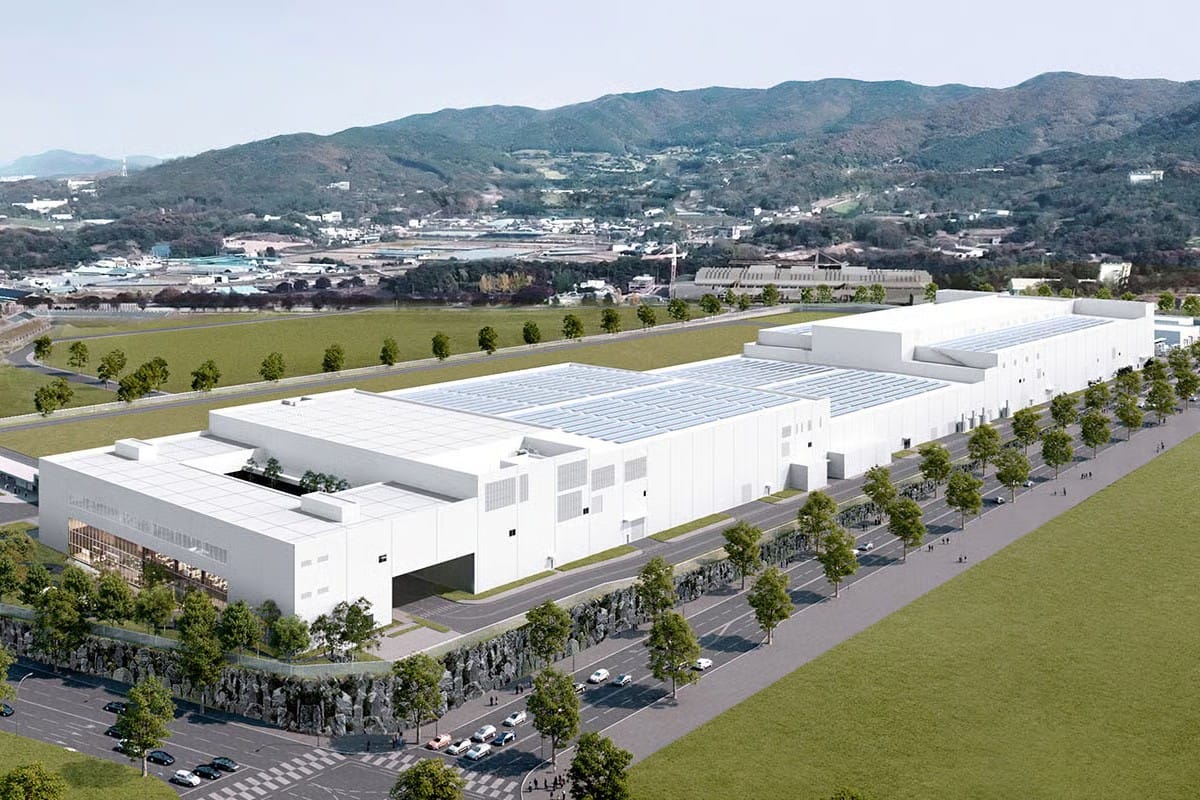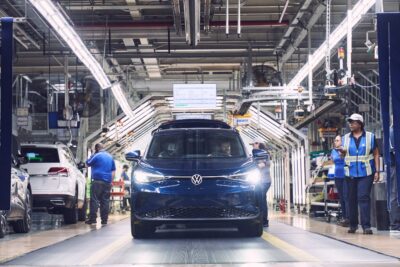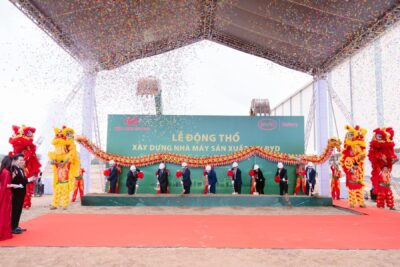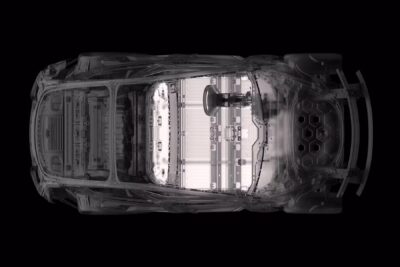Korea: Hyundai to open new battery campus in 2026
The groundbreaking ceremony for the new campus took place in January 2025, and Hyundai has now celebrated the topping-out ceremony at the construction site in an industrial area in Anseong. According to officials, the company is investing a total of 1.2 trillion won—approximately 700 million euros—into the facility. Covering nearly 20 hectares, the campus will span a total floor area of 111,000 square metres and will be equipped with “next-generation battery research and development infrastructure,” as the Hyundai Group highlighted.
To date, the group’s R&D centres in Namyang and Uiwang (both in Korea) have focused on battery materials, cell design, and process technologies. Research on initial cell and process design, as well as cell-level validation, will continue at these locations. “While existing research centers focus on initial cell and process design, and validation at the unit level, the Future Mobility Battery Campus will take this further by performing continuous process validation,” the manufacturer said. Key focus areas at the campus include:
- Replication of the Battery Cell Production Process: Simulating electrode manufacturing, assembly, and activation under real production conditions using advanced equipment.
- Integrated Test Environment for Iterative Validation: Enables repeated testing of the safety, quality, and scalability of critical battery technologies.
- Battery Lifecycle Testing: Assesses battery performance and safety across all stages, from the cell and module to the battery pack and vehicle integration.
- Development of Next-Generation Batteries: Focuses on high-performance lithium-ion cells for electric vehicles (EVs) and extended-range electric vehicles (EREVs), with future adaptations for diverse formats and materials to meet evolving mobility needs.
- Digital and AI Integration: Leverages AI-driven tools and automated testing to enhance precision and efficiency, while big data analytics improve reliability and optimise performance through data-driven insights.
Additionally, the Hyundai Motor Group emphasised its commitment to fostering closer partnerships with battery manufacturers on the campus. This collaborative approach aims to promote shared growth across the entire battery value chain, helping manufacturers and partners scale new technologies safely, reduce development risks, and explore opportunities for joint innovation, according to the company.
“Through the Future Mobility Battery Campus, we aim to seamlessly connect the entire battery ecosystem to foster cross-industry collaboration and accelerate technological advancement,” said Heui Won Yang, President and Head of the Research and Development Division at Hyundai Motor Group. “We are committed to strengthening Hyundai Motor Group’s EV battery competitiveness and advancing global electrification through strategic collaborations.” Hyundai reinforced this commitment during the topping-out ceremony by signing a letter of intent with Gyeonggi Province, Anseong City, and the Gyeonggi Housing and Urban Development Corporation to support the development of a regional battery industry.
Officials have not confirmed whether Hyundai plans to establish a pilot cell production facility on-site. However, The Korea Economic Daily reported over a year ago, citing well-informed sources, that the group is considering in-house battery cell production from 2027. Insiders suggest the first step involves advancing battery technology internally to improve both the performance and cost-efficiency of its electric models. Reports indicated that Hyundai was considering prototype production lines with a capacity of 1-2 GWh at the Anseong R&D centre, likely focusing on ‘ternary’ batteries such as nickel-cobalt-manganese (NCM).
This information remains unconfirmed, as does an earlier report from Korean Car Blog claiming that the Hyundai Motor Group, according to industry insiders, is nearing completion of a pilot production line for solid-state batteries at its Uiwang Research Institute.
This article was first published by Cora Werwitzke for electrive’s German edition.





0 Comments